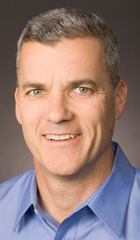
A student preparing her master’s thesis in healthcare management recently asked me, “Why aren’t more organizations doing The Eden Alternative or something like it?” From the tone of her voice, it was obvious that she was struggling to find an answer. Well, I’ve thought about this question a lot, so I had my answer ready.
I told her, “The transformation of an organization’s culture to person-directed care is really hard work. Culture change may sound like a simple concept, but it isn’t necessarily easy to do. It takes strong leadership to guide an organization through the transformation process. It takes time, energy, resources, and requires a strong focus on follow-through. Leaders need a combination of patience and tenacity to pull it off. If these realities are underestimated, the journey will likely lead to failure.”
There are lots of good ideas and strategies, all of which can go wrong when leadership and implementation aren’t prioritized. For example, The Eden Alternative encourages consistent assignment as a key ingredient of person-directed care, as does Advancing Excellence, Pioneer Network, and others. But even a best practice like consistent assignment can produce poor results. A tool is only as capable as the craftsman who wields it.
So, how do you set yourself up for success? Let’s start with strong leadership, which begins with sharing power. Person-directed care, by definition, means decision-making is happening as close to the Elders as possible. This isn’t possible if leaders aren’t willing to share their power. To share power leaders need to apply the principle of ARIA, which stands for Authority, Resources, Information, and Accountability. When leaders are willing to share these ingredients in abundance, they provide teams what they need to succeed and real cultural transformation can take place.
Next, it takes solid execution. What does that look like? Well, at The Eden Alternative we use something called the GROWTH model, which can be used as a framework for any quality improvement project. It is as simple as this:
- Get Real… Take stock of current strengths and available resources.
- Reach Out… Identify who should be involved in making the change happen.
- Open Up and Dream… Create a shared vision for the project.
- Work Up a Plan… Develop realistic goals and actionable steps to reach them.
- Take Action… Remove barriers to success and empower teams to proceed.
- Hold Steady and Reach Further… Sustain your gains and look for more.
Using a consistent framework with consistent language like the GROWTH model gets everyone on the same page working together to achieve the same goals. This is how things get done, and done well.
In the end my response to the student boiled down to this: Person-directed approaches like The Eden Alternative and best practices like consistent assignment are what we need to provide the very best for Elders and their care partners. Our success, however, hinges entirely on strong leadership, a willingness to take on the challenges we will face, and a firm commitment to solid execution.
Chris Perna is the CEO of The Eden Alternative. Follow him @ChrisPerna2.




